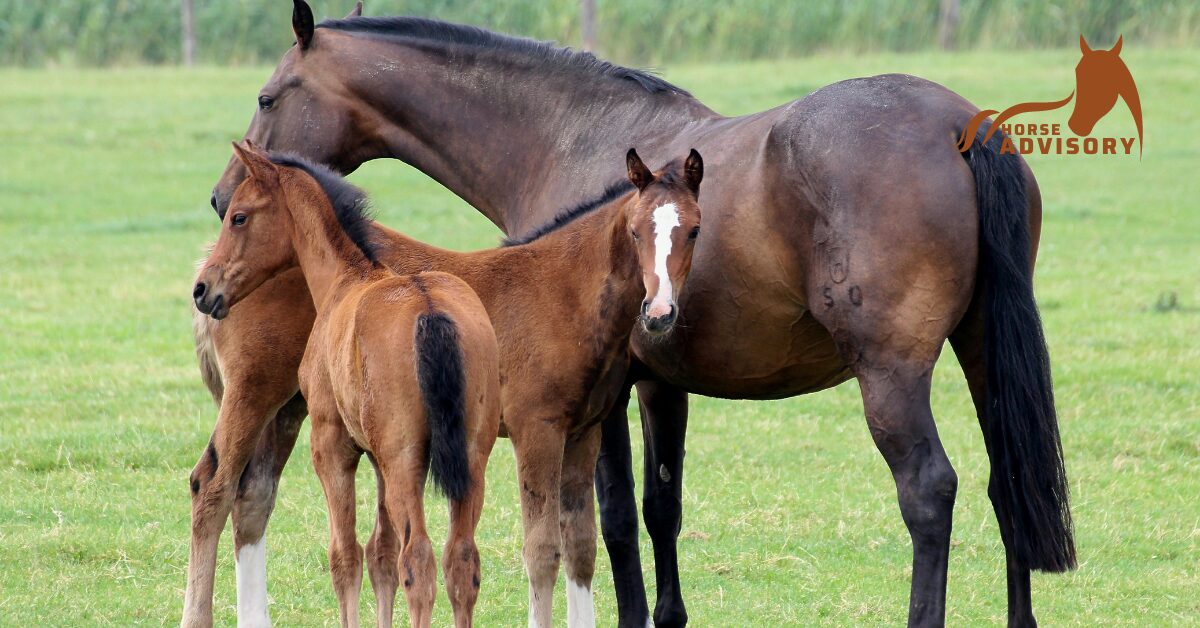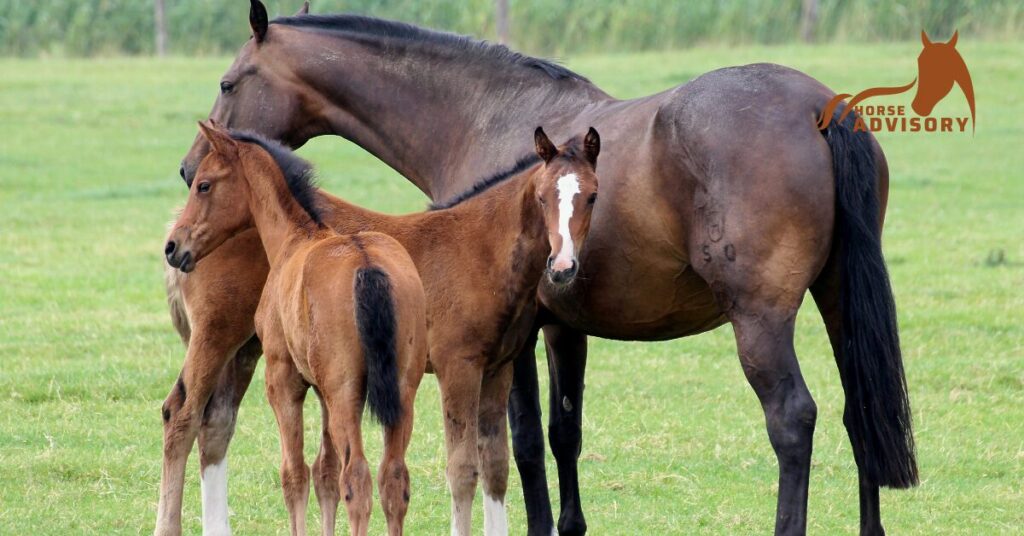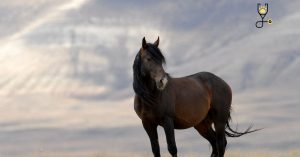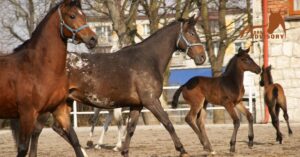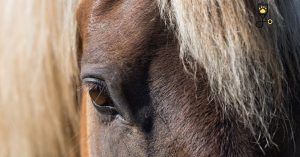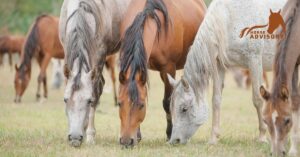In the intricate world of equine breeding, the principles of genetics play a profound role in shaping the characteristics, traits, and performance abilities of horses. Understanding the genetic makeup of these majestic creatures and the art of selective breeding practices sheds light on how breeders strive to enhance desirable qualities, preserve heritage lines, and propel the advancement of equine genetics. Join us on a journey through the fascinating realm of horse genetics and breeding practices.
Decoding the Blueprint: Horse Genetics Unraveled
Every horse carries a genetic blueprint that dictates its physical traits, temperament, and talents inherited from both parents. Genes influence coat color, conformation, athleticism, and health predispositions, shaping the diversity seen in various horse breeds. Exploring equine genetics reveals the complexity and beauty of hereditary traits passed down through generations.
The interplay of genes forms a unique mosaic of characteristics in each horse, reflecting heritage lines and breed distinctions. From coat colors to conformation details, DNA weaves a narrative of resilience and adaptability within different horse breeds. Equine genetics showcase the marvels of evolution and selective breeding, highlighting the interconnectedness and diversity present in the equine world.
Studying equine genetics unveils the unseen potential encoded within horses’ DNA, offering insights into their form and function. Breeders can leverage this genetic knowledge to nurture future generations of equines with care, ensuring a deep respect for the heritage carried within each horse’s genetic makeup.
The Art of Selective Breeding: Nurturing Excellence
Selective breeding in horses is a strategic practice where breeders carefully match compatible individuals to enhance desired traits and correct flaws. Whether focusing on improving speed and agility for racing or refining conformation and movement in show breeds, the goal is to produce offspring that showcase the finest qualities of their lineage. This meticulous selection process, informed by genetic knowledge and performance data, paves the way for the development of exceptional bloodlines and top-performing champions in the equestrian realm.
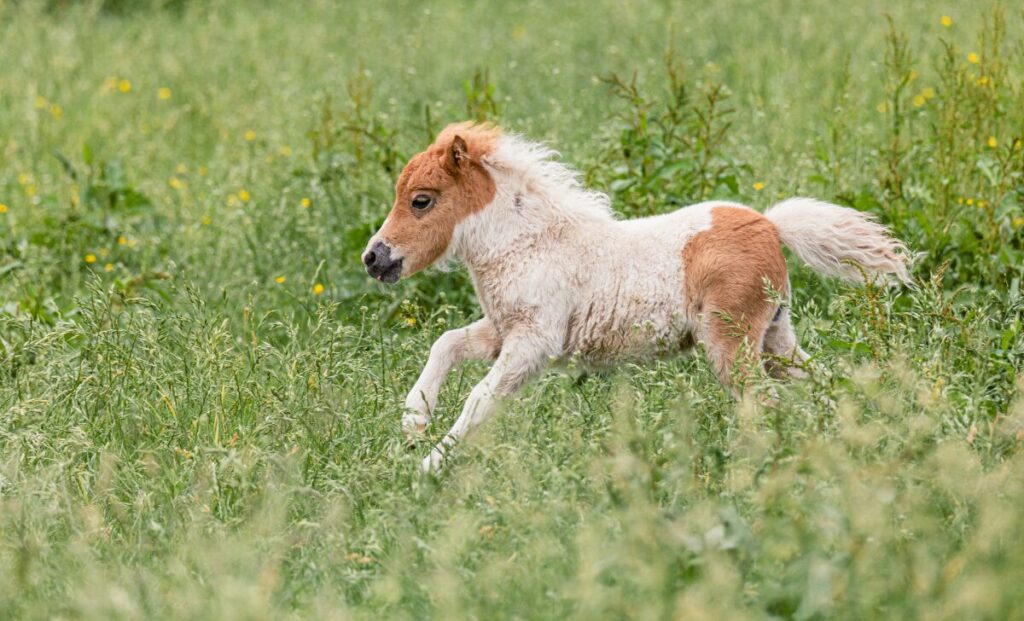
The essence of selective breeding lies in the deliberate pairing of horses to amplify favorable attributes while minimizing undesirable ones within the equine population. By combining genetics, performance evaluation, and a dedication to preserving excellence, breeders strive to create future generations of outstanding equine athletes and companions. Each breeding decision represents a calculated effort to uphold and elevate the exceptional qualities that define superior horses across diverse disciplines.
Through a balance of science and artistry, selective breeding practitioners navigate a landscape where precision and intuition converge to shape the next generation of equine stars. This pursuit of excellence transcends mere replication, embodying a continual quest for innovation and improvement in genetic selection. The legacy of selective breeding echoes through time, leaving an enduring mark of distinction on each descendant—a testament to the skill, vision, and dedication of those committed to advancing the quality and capability of the equine population.
Balancing Tradition and Innovation: Preserving Heritage Lines
In the dynamic landscape of equine breeding, breeders navigate the delicate dance between tradition and innovation, harmonizing modern genetic advancements with time-honored practices that pay homage to the rich heritage of horse breeds. While leveraging cutting-edge technologies, breeders remain steadfast in their dedication to safeguarding rare bloodlines, promoting genetic diversity, and upholding the esteemed standards that define each breed. This dual approach not only preserves the authenticity and historical significance of equine lineages but also lays a foundation for the enduring sustainability and vitality of these cherished breeds.
The commitment to balancing tradition and innovation in equine breeding underscores a deep-rooted respect for the past while embracing the possibilities of the future. By intertwining traditional methods with progressive genetic strategies, breeders honor the legacy of ancestral horses while propelling the evolution of modern breeding practices. This integration of old and new ensures that the essence of authenticity and cultural heritage remains intact, while simultaneously fostering a culture of continual advancement and refinement in equine genetics.
Through the synthesis of tradition and innovation, breeders forge a path forward that respects the intricate tapestry of equine history while adapting to the demands of a rapidly changing world. By marrying the wisdom of the past with the ingenuity of the present, breeders cultivate a legacy of excellence that transcends generations, ensuring that the timeless beauty and resilience of horse breeds endure as a testament to the enduring bond between humanity and these magnificent creatures.
Ethical Considerations and Responsible Breeding
In the realm of equine breeding, ethical considerations and responsible practices play a pivotal role in ensuring the welfare and vitality of horses. Breeders place a high value on maintaining genetic diversity, implementing stringent health protocols, and prioritizing the long-term care of progeny to uphold ethical breeding standards. By fostering a culture of responsibility and compassion, breeders not only enhance equine genetics but also demonstrate a profound commitment to the dignity and well-being of the horses under their care.
The ethical foundations of responsible breeding extend beyond mere excellence in lineage development, encompassing a holistic approach that considers the physical, mental, and emotional welfare of the animals involved. Upholding ethical standards in breeding practices involves making conscientious choices that prioritize the health and happiness of horses while safeguarding against detrimental genetic practices or exploitation. Breeders who embrace ethical considerations set a benchmark for industry integrity and exemplify a deep-seated respect for the intrinsic value and rights of every equine individual.
By incorporating ethical principles into every aspect of breeding, from selection to care and beyond, breeders pave the way for a sustainable and compassionate future for equine populations worldwide. Ethical breeding practices not only benefit the current generation of horses but also lay a foundation for the preservation of cherished bloodlines and the promotion of equine well-being in the generations to come. Ultimately, the conscientious integration of ethics and responsibility in breeding endeavors serves as a testament to the enduring bond between humans and horses, rooted in mutual respect, care, and a shared commitment to the betterment of equine lives.
Nurturing Future Generations: A Legacy in Motion
As we navigate the intricate landscape of horse genetics and breeding practices, we recognize the profound impact that each breeding decision has on the future generations of equines. Through a blend of scientific knowledge, artistic vision, and unwavering dedication, breeders shape the destiny of horse breeds, perpetuating legacies and forging new paths of genetic excellence. In this shared journey of discovery and stewardship, we celebrate the beauty, resilience, and majesty of horses—a testament to the enduring bond between humans and equines that transcends time and space.
Embark on this enlightening exploration of horse genetics and breeding practices, where science meets artistry, tradition harmonizes with innovation, and the spirit of equine excellence shines brightly in every generation of magnificent horses.
